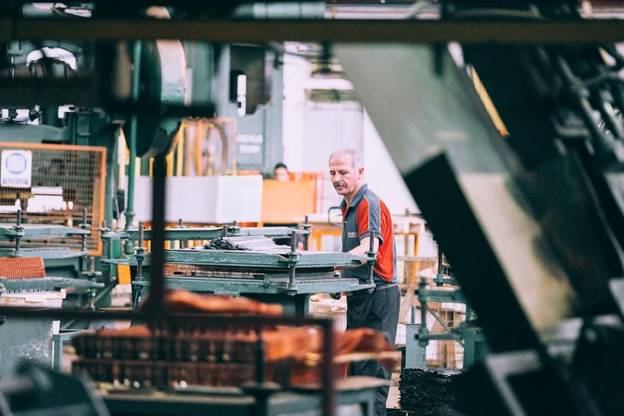The humanisation trend among pet owners increased significantly in the past years. Animals are now considered part of one’s family, meaning people maintain their health in excellent condition in an effort to lengthen pets’ lives. Recently, a fashion house even expanded its target audience to pet owners by creating colourful and comfortable clothing for their furry companions. This specific audience targets millennials and Gen Z, whose pets are treated with the most nutritious foods, toys and accessories.
But this trend is also demanding more from pet food processing companies. Pet owners are not looking for businesses prioritizing sustainability and having similar core values. But some are also very specific in what ingredients they want in their pets’ foods. People require meals with the most nutritious elements contributing to healthy and happy puppers or cats.
At the same time, the conditions in which these products are manufactured, labelled, and stored are crucial for winning an owner’s trust. This is why sanitation is vital for a company to provide fresh and natural foods.
Key sanitation regulations that pet food processing businesses must follow
A company’s success and reliability stand in its compliance with the legal framework. For a pet food processing enterprise to make its customers trust their practices and products, the following guidelines must be followed religiously:
- FSMA (Food Safety and Modernization Act) regulations have seven HACCP assessment principles that establish the base of safety for manufacturers that approach subjects like conducting hazard analysis and establishing monitoring procedures;
- GMP (Good Manufacturing Practices) guidelines are vital for pet food facilities as it discusses the importance of maintaining food processing equipment in proper condition. For example, seams need to be correctly welded to avoid leaking fats and oils;
- Proper handling of fats and oils is the most important if pet food manufacturing. The building must be cleaned thoroughly, and temperatures need to be properly assessed so that storage and cooking processes aren’t affected;
All the regulations above must be monitored continuously to ensure the company has a sanitary workspace and the animal food stays fresh. To maintain hygiene and safety around pet food processing machinery, staff should assess workplace hazards so managers can take the right actions.
Managers must look for an innovative and complete system to record what’s happening in the company with solutions like Alfraequipment that guarantee performance. Such digital solutions help control quality before product shipment, track materials, and receive local support to increase productivity.
Keep the proper temperature for all types of pet food ingredients
Pet food processing companies must know how to handle the raw materials used in their final products. Although each country or region has specific rules, some general guidelines are included in a category for potentially hazardous foods, called Time and Temperature Controlled for Safety (TCS), that address the significant importance of the following ingredients:
- Meat and poultry can accumulate biogenic amines;
- Dairy and high-moisture foods that are at high risk for bacteria or mould growth;
- Fresh produce, like greens or tomatoes;
- Jams, jellies and pickled products;
Other ingredients, like popcorn, candy and dry herbs, don’t require refrigeration but should still be handled carefully and not used after the expiring date. Considering the increasing variety of elements in foods for animals, manufacturers must prioritise keeping them in excellent condition.
Companies storing fresh produce must be focused on thoroughly cleaning before and after manufacturing to maintain quality. Cleaning and sanitising processing surfaces are essential, but avoiding cross-contamination by having separate areas for different tasks is also a must.
Understanding how improperly stored food can affect people’s pets is important. Considering most of them have the same meals every day, being exposed to microbes from spoiled foods can trigger chronic symptoms such as skin and coat problems. In some cases, their owners can’t seize them if there’s something wrong with the food, but animals might start to reject the food.
Train employees to follow hygiene guidelines strictly
Employees in pet food manufacturing businesses have a crucial role in keeping everything neat. Without their contribution, not even AI alone can deliver proper goods. But they must be appropriately trained, which is time-consuming as many areas need to be covered.
Workers need to understand the importance of raw materials and how easily they can spread bacteria and contaminate them with careless sanitation. Training sessions need to touch on subjects like:
- Handling and storing different types of ingredients;
- Using tools and equipment safety;
- Maintaining personal hygiene within the facility;
- Leaning the facility’s sanitation requirements;
Establishing health and hygiene policies is a top priority and needs to be assessed, even though it covers basic demands, such as washing hands with soap for 20 seconds before handling products and not coming to work in case of illness.
Most importantly, checking these aspects regularly will help build a proper company culture. You can take an example from Japanese companies that conduct health and safety controls early in the morning before employees start their tasks. This is done daily, and it prepares employees to keep the place sanitary and remember to follow hygiene guidelines.
On the other hand, maintaining a clean environment is solely done by employees, so they need to know how to handle surfaces where fresh produce or raw ones have been used. Most of the time, an entire process of scrubbing, rinsing and sanitising with approved products is required every day or even after every use. Equipment must also be cleaned with proper detergent, which is usually a chlorine-based product, followed by a test strip. The final step includes proper air drying to avoid mould forming.
Final considerations
Having a business in the pet food manufacturing industry can be tricky since complying with numerous guidelines must be done in a specific way to provide high-quality final products. Companies must abide by the HACCP and GMP guidelines and adequately clean the place. If these tasks are not adhered to, the enterprise might face legal actions and a dramatic downturn in sales since pet owners are pretty selective regarding their companions’ foods.







